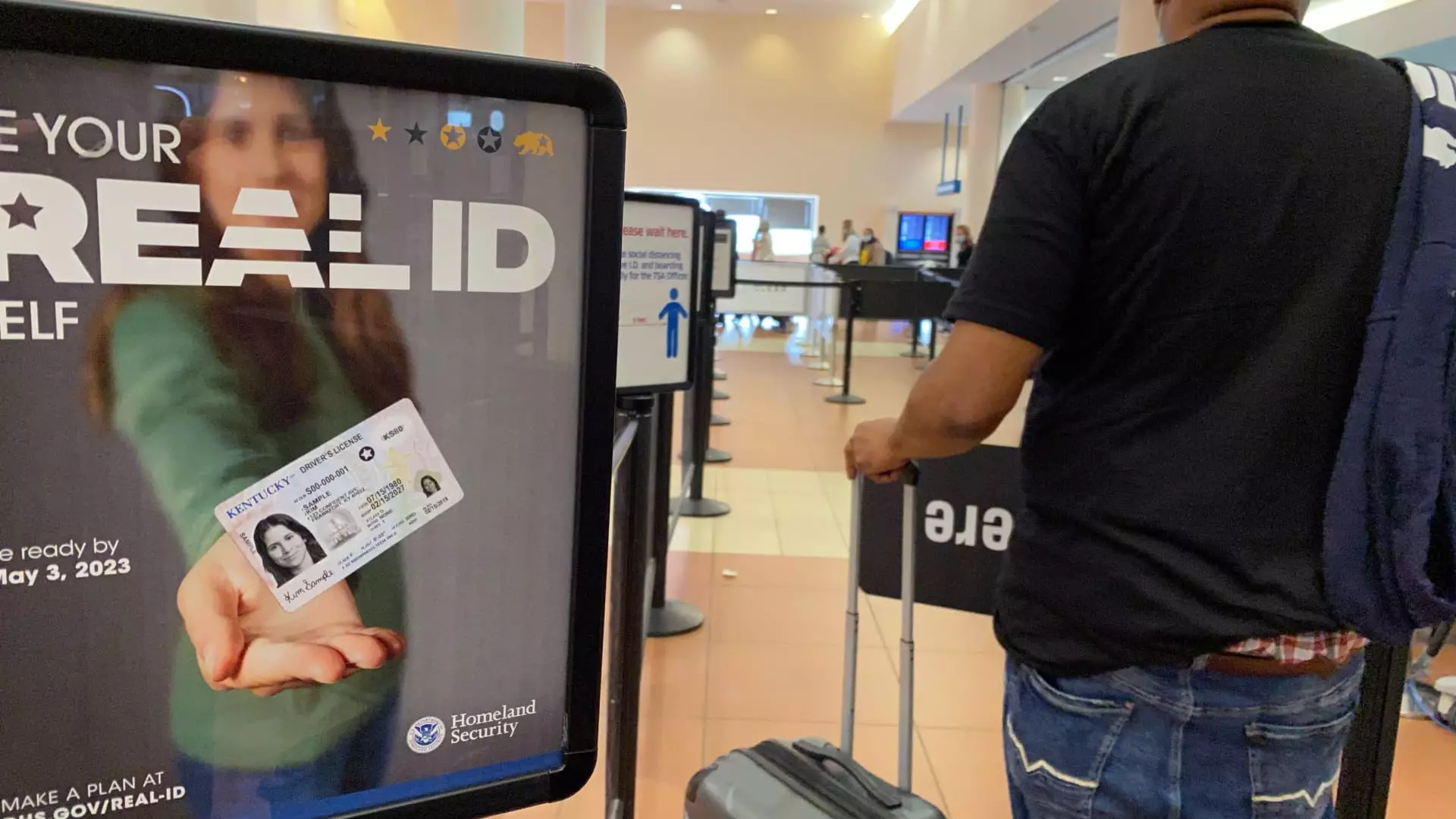As we grapple with the challenges of air travel in a post-9/11 world, a significant regulatory measure is on the horizon—the enforcement of the Real ID requirements starting May 7. For many, this impending deadline is far from a mere inconvenience; it is a wake-up call. This initiative is imperative for enhancing national security. However, it raises intricate questions about government overreach, the bureaucratic nightmare associated with obtaining compliant forms of identification, and the implications for the traveling public, particularly the casual traveler.
Real ID was birthed out of a tumultuous era defined by tragedy and a collective yearning for safety. The 9/11 attacks demonstrated glaring holes in national security protocols, one of which was the misuse of state-issued identification by terrorists. In response to this, Congress enacted the Real ID Act in 2005, initiating federal standards for state-issued IDs aimed at improving security at airport checkpoints. Let’s not sugarcoat it: in our modern age, the concept of an ID is not just a triviality; it has evolved into a license to travel. Yet, the government has delayed implementation multiple times, leaving citizens in a state of confusion. Now that the deadline is finally here, it seems like a cruel game of catch-up, with ordinary people left scrambling to adapt.
The Bureaucratic Maze: Inefficiencies and Frustrations
If you think obtaining a Real ID is as seamless as boarding an airplane, think again. The reality remains that motor vehicle departments are overwhelmed and appointment slots are rapidly dwindling. For those who require a Real ID, the transition can become an arduous challenge. The Transportation Security Administration (TSA) has done its part, encouraging people to book these appointments as soon as possible to avoid last-minute chaos. But does it really have to be this difficult? Adding insult to injury, you could find yourself on the wrong side of the security checkpoint if you misplace the deadline. With only about 81% of travelers reportedly prepared, it’s evident that communication has been subpar.
While the government rolled out flyers at LaGuardia Airport and airlines sent emails to customers, these were mere afterthoughts in a long-term game of catch-up. Surely, there must have been a more effective way to ensure travelers had ample notice and resources. The government appears more focused on enforcing compliance than facilitating accessibility and understanding. It’s frustrating for travelers who are burdened by these new directives.
Weighing Security Against Personal Liberties
Yes, security is paramount, and identity verification is essential to maintaining airline safety. However, we must consider whether this is a step toward greater government control over our private lives. When we normalize the need for special ID cards and heightened scrutiny, we tread a perilous path that may lead us to question the balance between national security and personal liberties. Is it justifiable for citizens to feel coerced into obtaining additional credentials to live their lives? I say no.
Underpinning the Real ID initiative is the notion that any diminishment of individual freedoms can be sold to the public as a necessary measure for safety. Yet, this rationale falls short in a free society, where one should reasonably expect to access basic services without untold bureaucratic hurdles. We should be vigilant against any policy that compromises our freedom under the guise of security.
Alternatives to the Real ID: A Closer Look
For those who find themselves unable or unwilling to acquire a Real ID by the deadline, are there real alternatives? Yes, there are options like U.S. passports and trusted traveler IDs, but these pose their own challenges. While the TSA promotes these alternatives, the reliance on government-backed identification solutions still feels overly restrictive. It’s imperative that we question whether these mandates are part of a broader trend towards increased surveillance.
As the May deadline looms, the debate surrounding the Real ID continues. We cannot overlook its necessity in today’s complex world, but we must also remain vigilant about its implications for personal freedoms and bureaucratic navigation. The conversation around identification, security, and personal liberties is not just academic; it has real-world ramifications for millions of Americans trying to navigate the complexities of modern life. In the face of mandatory compliance with an extensive identification system, it is essential to keep our eyes open to the underlying questions of privacy and individual rights at stake.

